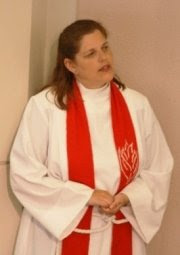Welcome back to the St. Paul's Bible Challenge.
This year we are starting with the Epistles. The word epistle means letter
These are the letters to the earliest congregations of Christians. Most of these letters were written from the earliest leaders of the Church to some of the earliest believers. Because paper was so expensive - and letters were hard to send, the letters tended to be copied and shared with other groups of Christians and read over and over.
Over time some of the letters got read more than others. As the years went on there came to be a "core set" of letters that nearly all the groups of Christians read and another group of letters that only a few groups of Christians read.
Around 330 AD Christianity had become legal and the Emperor and the Bishops both wanted to have a defined set of writings that could be called the Scripture of the Christian Church. Over about 150 years the leaders of the church discussed and debated which of the epistles should be included in the Scripture. By about 500 AD the Scripture was settled and included 21 epistles. These are the books that we are going to be reading this fall.
We are starting with the book of Romans. It is the longest and most influential of the letters attributed to the apostle Paul.
Unlike some of the others, that were in all likelihood written by a student of Paul, sometimes after his death. Romans was probably written (or at least dictated) by Paul himself. It was probably written between 54 and 58 AD to the congregation in Rome.
The focuses of the letter are the world's need for redemption and the saving work of Christ and the new life that results from it. He also touches briefly on the role of the Jewish nation in the plans of God and some ethical teachings.
Pay special attention to the 8th chapter. It has been said that if all of the rest of the Bible was lost, Christianity could be reconstructed from the 8th chapter of Romans.
Subscribe to:
Post Comments (Atom)

No comments:
Post a Comment